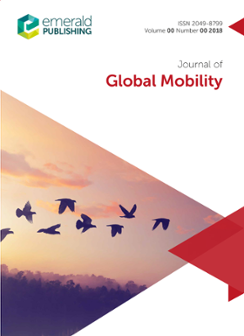Table of contents
Expatriate management in hostile environments from a multi-stakeholder perspective – a systematic review
Pia Charlotte Faeth, Markus G. KittlerThe successful management of business expatriates and their families in hostile environments (HE) is a current concern for academics and human resources (HR) practitioners alike…
How host-country nationals manage the demands of hosting expatriates: An exploratory field study
Anthony FeeUsing job demands-resources (JD-R) theory as a conceptual apparatus, the purpose of this paper is to report an empirical exploration of the experiences of host-country national…
Improving expatriate adjustment: a social network perspective
Sasha PustovitWhile the value of connections with host-country nationals (HCNs) for expatriate adjustment is well established, there is little guidance regarding which HCNs stand to benefit…
When does emotional intelligence function better in enhancing expatriates' cross-cultural adjustment? A study of Japanese PCNs in Malaysia
Jessica Marie Arokiasamy, Soyeon KimAs globalization expands opportunities for foreign investments, the role of expatriates is becoming important for business success in host countries. Cross-cultural adjustment…
Unlocking inhibitors to women's expatriate careers: can job-related training provide a key?
Susan Shortland, Christine PorterThe purpose of this study is to examine what job-related training interventions female expatriates seek and can access in order to build necessary knowledge and skills to progress…
Informal repatriate knowledge transfer: a qualitative analysis of Malaysian corporate executives
Sabrina Amir, Tyler G. Okimoto, Miriam MoellerThis paper examines how informal knowledge transfer processes unfold during the repatriation of Malaysian executives. The goal is to develop a repatriate knowledge transfer…

ISSN:
2049-8799Online date, start – end:
2013Copyright Holder:
Emerald Publishing LimitedOpen Access:
hybridEditor:
- Professor Jan Selmer